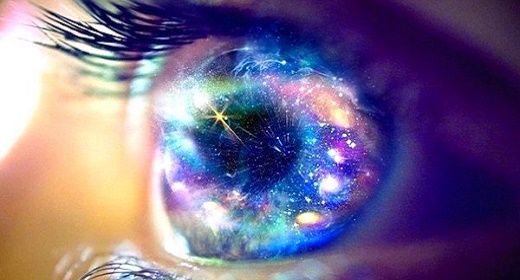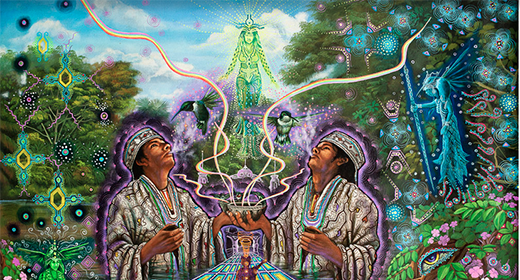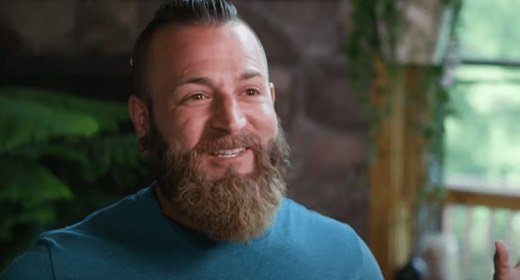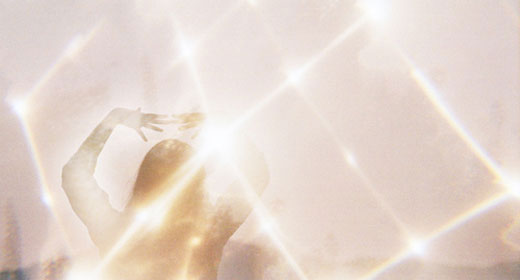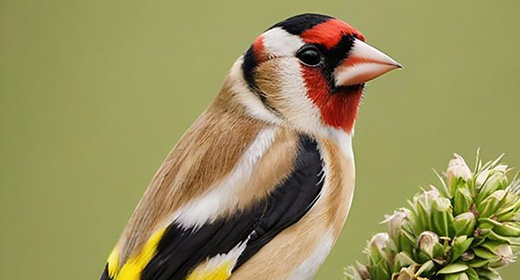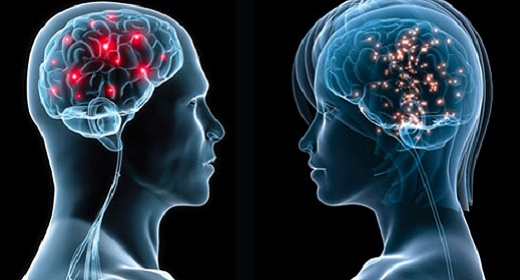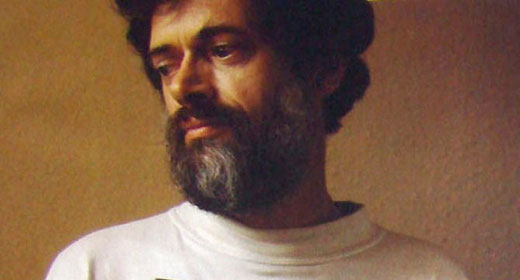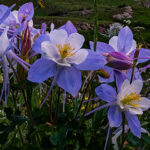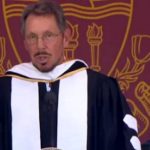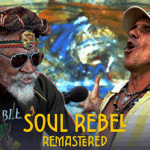Donna Quesada: Well, I just love changing my mind, or liberating myself from those biases, you know…
that I may have internalized along the way, from who knows how and who knows where. So, I love what you said and that spirit of brotherhood. The only time I really had that was in my Zen training, where you can be buoyed up by your community and supported by others who are going through something very, very challenging. And that togetherness can be a terrific support system, but it can also nurture you and push you to do things that you thought you couldn’t do. And so it sounds like you had that experience, and you were able to use that in the work that you do as a coach.
Chris Steely: Yeah. That’s a big foundational component of the spirits that I create in the context of a coaching scenario. And so, by the way, when you say coach…
DONNA: And maybe I’m not… how would you characterize the work that you do? What would be your own elevator speech? You know, how you represent yourself?
CHRIS: That was funny when you say coach, right? There’s a time and a place for coaching, and I was coached as a kid in various sports, and then I excelled in the sport of rowing, and then I went on to coach that sport, as well. So coaching, there’s a whole definition of an ethos around that. So that’s what coaching is. Yet I believe when you coach, and you’re being coached, this is one of the things I teach, as I train coaches… is you create a space, you create a zone of possibilities that is practically metaphysical. It’s ethereal, right? What could be one on one or in a group. And there’s this zone of possibilities that you create and in that space is where the magic happens. You call that the coaching space. And I’ve become pretty good at that in the context of coaching. Yet, what I’ve become now is not so much a coach but more of a “facilitator.”
So I started off. I went to military boarding school when I was 16, and I learned that I’m meant to be in front of people… in the context of leadership and lead them, right? So military boarding school, college fraternity, I served on business boards throughout the community, Marine Corps business… Again, back to understanding my identity and doing the work to know what my strengths are, what my passions are, and knowing that those are God-given and that gives me a channel on a foundation to employ those with responsibility and understanding. So it became coaching, training, speaking, advising, consulting. I own a management consulting firm. And it’s a consulting firm, and if you think about the word “consulting”…
What has become as a synthesis of all of that and what I do now, Donna, is I’m a facilitator. I’m a professional-certified business facilitator. And the magic of facilitation… one of the things I love about it is, notice all these components as we talk about the essence of all these services we provide. I am the coach, I am the trainer. The beautiful thing about facilitation is it takes the spotlight off me, and it shines it on the people that I’m working with. So it’s back to leadership. Because this is one of the things I do when I facilitate teams. I set the foundation and I tell people that it’s the collective genius that we bring into the space. That’s what helps business advance, right? It’s not necessarily about one person leading or being the coach. It’s about all of us with that spirit of what we can do together, back to the Marine Corps organization and the unit. We do it together and it’s the spirit of that collective consciousness, that makes all the difference. So that’s what I do is, I facilitate that with corporate boards and teams so that they can collaborate and cooperate more effectively and accomplish their missions more effectively.
DONNA: I was reading about how you were able to bring your own childhood chaos and dysfunction into your life and rework it as something like a fire, you know, that enables you to rise higher… using challenges and turning it around to become stronger, and to overcome fear, and specially to overcome victim consciousness. That, I found especially inspiring. How how do we overcome that victim identity so that we can overcome our trauma and shine in the work that we do?
CHRIS: So using your words Donna, as we kind of unpack each one of those traumas… So trauma. How do we overcome trauma? Trauma is unique to us, right? We’ve all been… Again, as I project into it… We’ve all been traumatized to some extent, right? And who am I to say what anybody else’s trauma is, right? And at the same time, it’s a foundation of who we are, and if we can confront that, and understand why it was… And for me, I can tell you what it did for me, right?
All the trauma, the victim… the grief, the sadness, and the sorrow, so much that happened to me as we all process that in our lives. And what I believe is that we come to a place where we realize that it’s happening for us, and it’s back to that dynamic of actualization. How did it happen for us? What did it do for us? And I can tell you what it did. What my family of origin’s dysfunction did for me is it caused me to be a catalyst for change, and be the example of what the result of that trauma in my life is not. As I go back to confronting specific traumatic moments.
And it’s interesting. We talk about trauma, and in the military, that trauma, PTSD, has become kind of a thing… Post Traumatic Stress Disorder, and there’s a lot of veterans that are out there taking their lives because of the trauma.
DONNA: Yeah.
CHRIS: And it’s also traumatic to leave that organization of brotherhood and sisterhood. Where people believe in one another, and they trust, and have faith in one another. When you leave that it can be traumatic. So that’s an aspect of trauma. So what we get to do is go back to those moments of trauma and reframe. And this is what I’ve done. I’ve done the work, and I think for others that have done the work, they could probably say, “yeah, that’s what it takes.” It’s to understand what that did, what that allowed me to become, so that I could do the work that I’m meant to do.
So again, reframe trauma. It happens to all of us, but don’t see it as a victim dynamic. Choose to overcome it, come to terms with it, process it, reframe it, and become a victor in that context. Because we live in a victim based society, everybody loves to be victim. So many victims out there. There is so much drama in that context. Extract the drama, in the space, and realize what your responsibility is. To understand what that did for you, so that you can rise up and become the person…
DONNA: One more selling point for the need to awaken, so that we overcome that victim consciousness and allow ourselves to go further in life… it reminds me, in fact, while reading through some of your work… you talk about the lottery winners and after a certain amount of time, they end up right back where they were. Of course, I’ve heard that before but, why is that? Why is it the case that so many people, when something is won, they end up reverting back to where they were, whether it’s the lottery or any other kind of great boon in life?
CHRIS: I think that no matter what happens for us… Oftentimes, in the context of comfort of life, in the comfort of being human… We just naturally defer to our foundational instincts, and our foundational identities. And if those foundational identities come from a place of scarcity or a place of fear, then no matter what happens for us… in a good way, right? Whether you be… if you want to interpret winning a lottery as a good thing. That the gravity of our essence pulls us back to that zone of comfort, that zone of function or dysfunction.
DONNA: It’s a kind of inertia. It’s a kind of habit pattern that takes over.
CHRIS: And the imperative to kind of rewire that, and to take that on, and understand what this dysfunction has done to us, and how it might be afflicting.
DONNA: Yeah.
CHRIS: In context of victimization, that’s my answer to that. And again it’s unique to every human.
DONNA: Yeah.
CHRIS: As I sit here and project, and I talk about my biases and everything, it’s really important that we go through these processes of understanding and take ourselves on, and it’s practically a spiritual journey. But there are ways to do it. As I go through life and I become more mature, I’m so aware of so many different ways to be able to go back and reframe that, as opposed to… It should be creating a new foundation to fall back on, so when something happens to me that’s a good thing, I don’t let those paradigms of identity of thought that I was at on a lower level, called a “frequency”…frequency vibration.
I choose to consistently be aware and raise that vibration into one of love, peace, joy, fulfillment. You know, as opposed to the dynamics of lower vibrations, that I think many people in this context would be aware of around grief, and shame, and sorrow, right? And it’s a choice. We get to come from that place. Make a choice, and then play with that and exercise that, and realize that when we’re in the midst of it and we’re in the crucible, what is our default? What is our instinct? And then be aware of why that is, and then take that on, and rewire that if we so choose. It’s not an easy process necessarily, but frankly, I think it’s being fair.
DONNA: Well, you’re talking about different ways of doing that. Of undoing that wiring that holds us down, or raising our frequency. Whatever language we choose to use… you know, that enables the kind of liberation from habit patterns that are no longer serving us. One of those ways, is through the use of psychedelics. I’d love to explore this with you if you’re willing. How have psychedelics been another tool for you, and you’ve discovered this tool later in life I presume?
CHRIS: Yeah.
DONNA: How have they been an addition to your palate?
CHRIS: So I’ve always been a fan of technology. Being an innovator, right? What technologies are out there? What are the new things that are happening? And there’s different levels of technology. Information technology. Different types of technology. So, in the context of psychedelics, I consider psychedelics to be a chemical technology. The technology of spirit that can be induced through the implementation of… Again, I’m still trying to figure out how we’re gonna do it without calling it a drug. It’s a chemical.
Frankly, let’s say, with Ayahuasca. Ayahuasca is a chemical induction that goes into the biochemistry that stimulates the pineal gland to produce DMT, which is a chemical reaction in our brain. And that allows us to transcend, and to transform in that context. So, always been a fan of using technology to optimize.
So, better living through Chemistry is what I’ve been noticing, right? So, as you consider the induction of what I consider to be sacred, chemical dynamics that I put into this flesh and bone meat package, to enhance this biochemistry… I started with… I’ve always been a nutritional guy, right? Responsible for the food we put into our bodies. I believe that food is fuel. Actually, it’s medicine, frankly, and we get to treat fuel, and everything we put in our body with the sacred respect, right?
There’s so many things we can put into our body that we enjoy, and we love, and there’s that feeling of pleasure, right? So all that being said, for me, the induction of sacred plant medicines has allowed me to truly understand my essence in a way that’s frankly, Donna, impossible to describe in words. It’s something that I believe we can experience. You know, it’s unique to us. So I started my experience. I was guided by a mentor that thought it might be my time and I was called to the medicine.
I started working with Ayahuasca about 10 years ago. And I’ve come to realize that Ayahuasca, which is a plant-based medicine, you know, originally from the Amazon, is actually a spirit. They’re like, “what do you mean that a chemical can be a spirit?” It’s impossible to describe in words until you experience it for yourself. And when I first experienced this induction of the elixir and what it did for me, in the context of altering my biochemistry… it allowed me to see things that I didn’t think we’re even possible. It allowed me to see the essence of my soul.
As I’m sitting, processing right now, that part of who I am, and once you see that, you don’t un-see it, you feel it… that is the essence. Once you experience that, you can’t un-experience that. It becomes part of who I am. So it’s that transcendence that allows me to transform. Whether it be through Ayahuasca, treated with sacred medicinal respect, or you know, Psilocybin in the mushroom. And there’s a whole school of thought on mushrooms, such a beautiful element. Just the mycelium effect of that, and just what Psilocybin does. And there’s so many other modalities that we can choose to engage, to be able to optimize our awareness and our consciousness.
So, I believe that plant medicines are a channel for consciousness and it’s something that gets to be experienced. Unfortunately, we live in a world where it’s taboo and people abuse it. Human beings abuse it. I’m not talking about abuse. I’m talking about sacred respect of these medicines that are indigenous and are a natural part of the earth. That for me… it’s formed me in ways that are hard to describe in words, right? But I can’t imagine life without them at this point. I mean, life would have been good potentially without them, but it’s so much more fulfilling with that aspect.
DONNA: As challenging as it is to put it into words, could you speak to what the experience was like, to the extent that it’s possible, and how it impacted your world view, and your sense of what your mission is?
CHRIS: So what I’m running through my mind right now, since you asked the question… In my mind, I’ve actually sat with Ayahuasca 20 times. And each one is a sacred ceremony. It’s a 4 hour journey and during that journey, I experience things that are transcendent, transformational. There’s also other modalities that I experienced. Something that’s become known now as 5-MeO-DMT, which is a different form of pineal stimulation, and which is a different type of experience… I’ve experienced that as well. So, as I answer your question, this is a good experience now because I’m actually going back to my experience of those 20… 30, actually. Let’s call it 30 journeys of transformational transcendence. Going to those realms, I see things about myself. Like ego. I heard what ego was, right? I was like, well ego, yeah… I actually now know what my ego really is because I experienced it. I saw it. I escaped from it. I transcended it and then, as it came back into my essence, I’m like, “Oh that’s what my ego is.”
DONNA: Wow.
CHRIS: And it’s unique to me, right? And it’s unique to everybody, but I got to see that. I’m like, it was revolutionary in the way I process this. Like, here’s another one for you. This one I like to share. I’ll try to put this into words. Initially with the induction process of the 5-MeO, which they call “the toad”… UFO is what it’s known as. It’s a very fast experience, and you transcend very quickly, and you’re gone. I mean literally transcended. It’s hard to describe what gone means. You’ve practically died. They say you die in the medicine. Because you leave. Your psychology, your spirit goes into a different place. And it’s a strange place… it’s impossible to describe. And immediately, the first time I did it, there was fear. Because everything that I thought I was, including my ego, and anything I could grasp onto is gone. And I entered what I now know to be the akashic field.
If you study the Akashic records and the Akashic field, there is a field that surrounds us, that… don’t take it from me, take it from the quantum physicists, right? It’s around us all the time and I was able to experience that. And the polarity, the pulse of existence. The first time I did it, it stopped. And everything that was a pulse, because we live in a duality-based environment where it’s like a Yin and a Yang in a pulse. And the pulse stops. And then like, what do you do with that?
It’s a space that I went into. And the imperative, Donna, the key is, that is the integration. The re-integration after one goes into that realm, that zone of transformation… That’s the key, and too many people take these substances, these chemical dynamics, which as human beings, we want to escape, right? We all want more pleasure, we want less pain, right? So, many people will use them for the wrong reasons. My experience with the sacred use of plant medicines is that it cures people, it cures. I also noticed that some people get stuck in that paradigm because they just can’t deal with this realm and they want to escape it. That’s not a good place to come from. But anyway, all that being said. Treat it with sacred respect. For me, it’s taught me aspects of my character, my soul. my spirit, my personality, my family, you know. Things about my origin, as well as about my future that allowed me to kind of reframe things. And there’s lots in this, lots of different modalities. I mean there’s mescaline, which is more of a Native American, an indigenous substance. There’s ketamine, which is something that’s been synthesized, but it allows us to transform and go into different places, to confront our psychology and our souls. So anyway, I love talking about it because it reminds me of the essence of who I am. Again, practically impossible to describe in words.
Read and Watch Part 1 Here: Awaken Interviews Chris Steely Pt 3 -Surrender To Your Purpose
Read and Watch Part 1 Here: Awaken Interviews Chris Steely Pt 1 – Enlightenment Is More Like a Rheostat than a Light Switch

